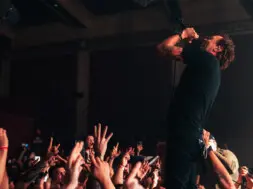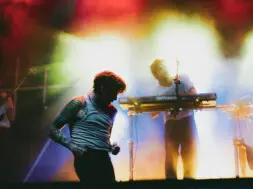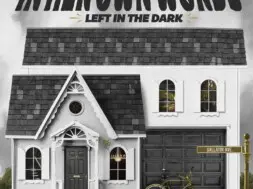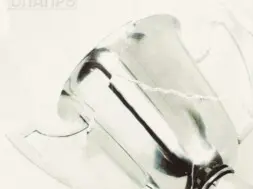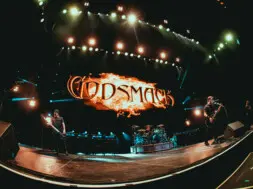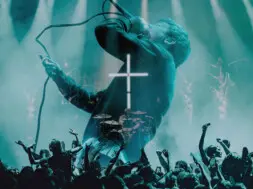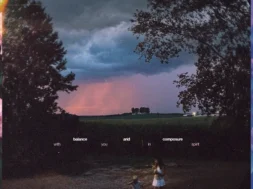
It’s pretty damn depressing that the bulk of under-20s – hell, maybe under-25s – will primarily recognise the name Dr Dre as the one attached to a terrible brand of headphones. Few men in history have contributed as much to the world of hip-hop as the good doctor, who’s produced as many classic records as anybody anywhere in the industry and mentored numerous genre heavyweights including its heaviest weight of all, one Marshall Mathers. In a year in which Dre has been crowned the world’s richest musical performer by Forbes we finally get a third studio album issued under his own name – not the long-in-gestation supposed masterpiece ‘Detox’, but a work inspired by the Straight Outta Compton biopic based on the group he originally made his name in – “Fuck tha Police” legends NWA, for the uninitiated. Sixteen years after his previous “solo” record (for no Dre record is really a solo affair) ‘2001’, it’s a killer reaffirmation that hip-hop is more often than not far, far better when the doctor is in session.
The production is, of course, exquisite – a seamless patchwork of classic West Coast hip hop tropes, contemporary electronic sounds and left-field influences that perfectly underpins an exploration and celebration of Dre’s home city of Compton. Every beat stands out, whether it’s the air tunnel guitars of “Issues”, the eerie shuffle and grind underpinning “Genocide” or the hypnotic piano-led second half of “Darkside’/Gone”. Little tricks like the panning on “Talk About” are cunningly used sparingly, instead the rich textures, slinking bass lines and blockbuster synthesizers given adequate room to show their muscle. One of the premier showcases of Dre’s talents is the final minute and a half of “Talking to My Diary”, where the consistent beat of and old school percussion loop and shimmering strings is joined by soulful saxophone, a gorgeous solo fading out at just the right moment.
“Diary” is an effective closing statement as the one song on which Dre takes full vocal reins – elsewhere he relies as ever on a raft of special guests ranging from superstars to lesser known talents, in particular Anderson .Paak who pops up on six tracks and takes the lead on the emotive racial ballad “Animals”. Rather than his own mic skills, Dre’s real expertise has always been bringing out the best in other rappers – “One Shot One Kill” includes the best Snoop Dogg verse in recent memory, his atypically aggressive and fittingly boastful veteran flow slicing through the driving rock beat kicked off by a screamed cameo from Chiodos’ Craig Owens, of all people. The abrupt beat changes that cut “Loose Cannons” into sections give verses from first COLD 187um and then Xzibit a perfect feeling of impact and importance.
Kendrick Lamar provides the most easily lauded contributions, particularly his fiery contribution to “Deep Water” with playful but reality-grounded implications of shooting someone but realising “banging wasn’t for everybody”. Throughout the record there’s a gritty realism that can only come from real understanding of its subject matter, in this case the infamous streets of Compton. The real masterpiece, though, is “Medicine Man”, centred on a seductive, deliciously lyriced hook from Candice Pillay (“f**k the world now, I’m done with foreplay” / “doctor’s orders, go f**k yourself”) and flirting with various dynamics and moods masterfully. Just as you think it’s settled, Eminem then arrives to deliver a stunning verse befitting his Rap God status, incorporating the hook in a genius fashion and proving he will always be Dre’s real greatest discovery.
Many have complained about a certain phrase Em drops, but it’s far tamer than, let’s face it, the bulk of his early work and is far less excruciating than the shooting skit shoehorned into “Loose Cannons”, which although adds to the cinematic feel of the record does little to really advance the narrative which has already been fully fleshed out in the verses. When compared to genius touches like the all-vocal breakdown on “Genocide” and even the voiceover and breezy backing track of the intro it’s an outdated inclusion that would have worked were Dre was a young gun but falls somewhat flat given he’s now on the top of the game and making millions. Regardless, the album as a whole strikes a good balance between maturity and a celebration of the youthful vigour of many of his guest stars and hip-hop as a whole.
The genre is in healthier fashion in 2015 than it has been for some time – Kendrick’s put out what many consider album of the year, Kanye (for better or worse) has topped the bill at the world’s biggest festival and the Odd Future collective may have split but they’re still realising great music as individuals. But it’s Dre who in ‘Compton’ has truly captured the vitality of hip-hop and shown just how good it can really be. It’s unlikely to be remembered as well as ‘The Chronic’ or the Dre-produced classics, but does secure the legacy of perhaps the most important man in the history of the game.
https://www.youtube.com/watch?v=hYVJ4mgrsaw

